How To Win Without Succeeding
Tennis Lessons For Ordinary People

How To Win Without Succeeding - Failure is The Norm
The concept of "How To Win Without Succeeding" may sound counter-intuitive but it reflects reality.
Most motivational speeches have an anecdote that features how someone overcame tremendous odds and yet came home a winner.
The personal development and self-help world is steeped in case studies and analysis of success. Numerous studies have been undertaken on successful people to understand what it was that they did to become so successful, how they did it and when they did it - and we are led to believe that we too can achieve comparable success if we replicate this.
We are told by the self-help gurus:
“You can be anything you want to be, if you put your mind to it.”
“Your thoughts have resonance and if you think enough positive thoughts for long enough, they will manifest.
But that is just not true.
This focus on success is very odd given that:
Success is the exception rather than the rule
Every scientific discovery, every new invention, every great innovation, every new idea of substance is the product of innumerable failures.
Most people do not realize all of their dreams. Most of the time, most of us fail. Hard work, skill, focus and persistence are not enough without the randomness of chance and the alignment of many factors, principally being in the right place with the right offering at the right time in the right environment.
For every successful business person there so many more who have failed - over 95% of new businesses fail.
Many people do not find the life-partner of their dreams.
Failure is the norm. Most of the time, your plans do not work out as you wanted them to.
Understanding Our Forgotten Failures
"The first reason to turn towards failure is that our efforts not to think about failure leave us with a severely distorted understanding of what it takes to be successful. " (Oliver Burkeman)
Here are some pointers to help you understand:
Where does all this leave us? The notion that you might fail can really slow you down. But it’s not the failure itself that’s the problem. The problem is your relationship with failure.
A good failure is a powerful learning experience.
So accepting your limitations, and embracing failure as an opportunity to learn, improve and grow, what next?
Well this is where you can gain valuable insights from the world of tennis about how to win without succeeding.
"Amateurs win the game when their opponent loses points, experts win the game by gaining points. " [Shane Parrish] Simon Ramo, a scientist and statistician, wrote a fascinating little book in the 1970s: Extraordinary Tennis Ordinary Players. Ramo identifies the crucial difference between the winner’s game and a loser’s game. In his essay, The Loser’s Game,
and referencing Ramo's work, Charles Ellis calls professional tennis a
“Winner’s Game.” While there is some degree of skill and luck involved,
the game is generally determined by the actions of the winner Amateur
tennis is an entirely different game. Not in how it is played or the
rules but, rather, in how it’s won. Long and powerful rallies are
generally a thing of the past. Mistakes are frequent. Balls are
constantly hit into nets or out of bounds. Double faults are nearly as
common as faults. Over many years' of observation and analysis
Ramo had concluded that there were 2 games of tennis. One game is played
by the professionals and the other is played by the rest of us. Ramo
found that 80 percent of points in high-level matches between
professional players were the result of winning shots and only 20
percent the result of unforced errors by one’s opponent. In
contrast, the dynamics of matches between amateurs were reversed. Eighty
percent of points came from unforced errors. An amateur player seldom
“beats” an opponent; rather, the player who makes the fewest mistakes,
who simply continues to keep the ball in play, usually ends up winning. From Ramo’s perspective, if you want to win at tennis, you have to adjust your strategy to your abilities. For the “ordinary” tennis player, this means understanding that amateur tennis is a “loser’s game” where success comes from avoiding losses. The
point is that most of us are amateurs but we refuse to believe it. This
is a problem because we’re often playing the game of the professionals.
What we should do in this case, when we’re the amateur, is to invert the problem and focus on how to win without succeeding: Rather than trying to win, we should avoid losing.
Two examples: [1] NETWORKING & REFERRALS Key Point:
Accept that just because someone you know and trust believes something
to be true, does not make it so [until corroborated by market data] it
just means that they genuinely believe it to be true. Specifics: Starting out First impressions Developing the relationship Early warning signsHow To Win Without Succeeding By Avoiding Losing
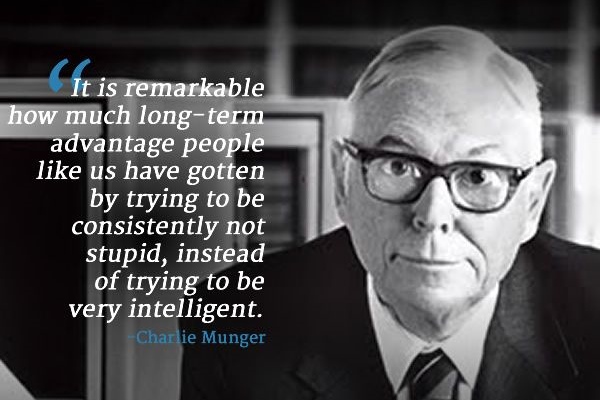
How To Win Without Succeeding By Avoiding Stupidity and Unnecessary Errors
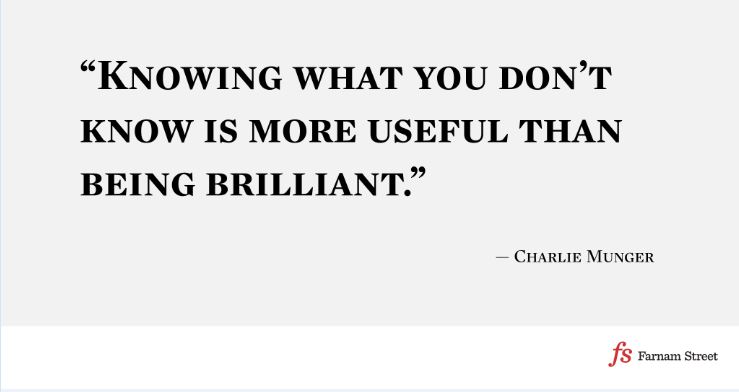
[2] DECISION MAKING & EXERCISING JUDGEMENT
Key Point:
Understand and know how to avoid: [1] Cognitive Distortions - the psychology of human misjudgement; and how to apply [2] Mental Models.
Specifics:
- The first and most obvious point is to understand and be fully aware of these cognitive biases and cognitive distortions.
- Understand the power and pitfalls of Heuristics i.e. the mental short cuts that we all use all the time in everyday decisions.
- Understand the forces at play, especially the boundary between knowing what you do know and what you don't know. Understand your Circle Of Competence.
- When making important and significant decisions, invest the time to apply good Thinking Skills to the whole decision making process.
- Pay particular attention to First Principles Thinking and Second Order Thinking
- Understand and apply Mental Models
How To Win Without Succeeding With The Balanced Toolkit
Here is how it all hangs together.
I have listed above - with references and resources - some examples of how to win without succeeding in significant areas in life and business and where we can all take steps to increase our chances of winning by losing less.
This is a long game and if you engage you will find that the route to winning will take you along the road less traveled.
Feel free to contact me to discuss further if any aspect of this resonates with you.
How To Win Without Succeeding - Further Reading
The Challenges Of The Road Less Traveled
The Law of Response and Outcome
Embracing Uncertainty & Failure Is The better Option
Your Relationship With Failure
The Luck Factor - The Power Of Expectation
Secret Of Success - Identify Your Core Desire
Your Point Of Focus - Is Helping You Or Hindering You
Return from "How To Win Without Succeeding" to: Home Page
- What if everything we think…
LATEST ARTICLES
The Power Of Patience - Why You Need The World's Toughest Quality
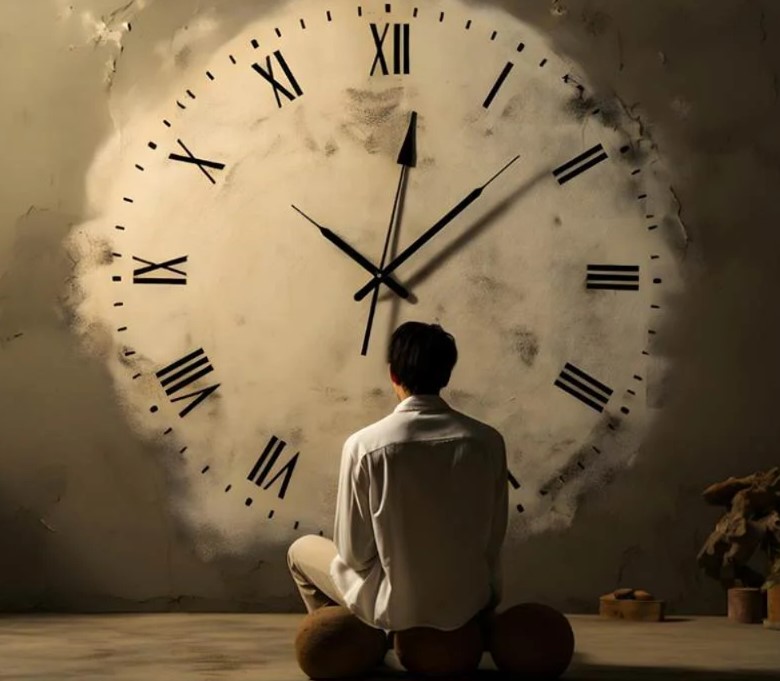 Nothing in the world can take the place of patience. Patience and persistence are omnipotent. In everyday life, patience is often overshadowed by the desire for immediate results. We live in an era of…
Nothing in the world can take the place of patience. Patience and persistence are omnipotent. In everyday life, patience is often overshadowed by the desire for immediate results. We live in an era of…Demonizing The Other and Personal Acts Of Compassion
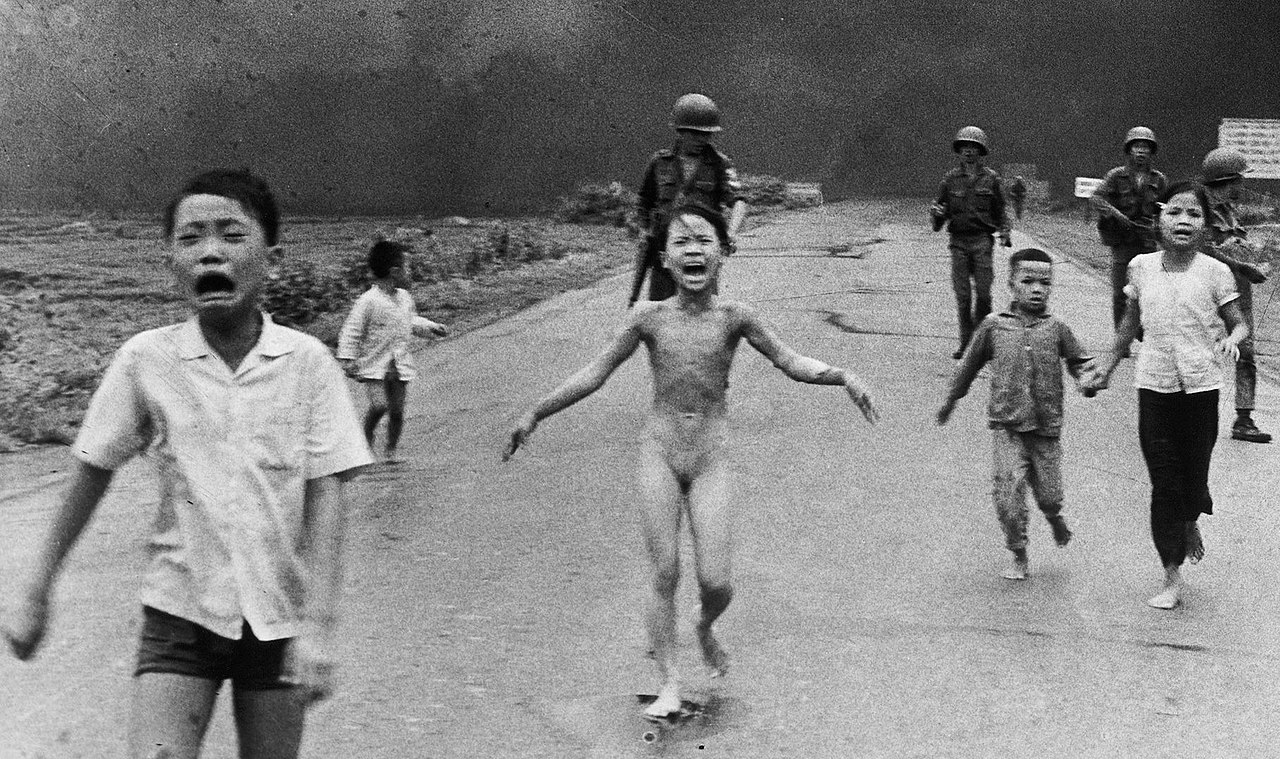 What Does Demonizing The Other Mean? Demonizing the other refers to the act of portraying a group of people or an individual as inherently evil, threatening, or inferior. It often serves to justify di…
What Does Demonizing The Other Mean? Demonizing the other refers to the act of portraying a group of people or an individual as inherently evil, threatening, or inferior. It often serves to justify di…Why You Should Embrace Anomalies - The Incredible Value Of Disconfirming Evidence
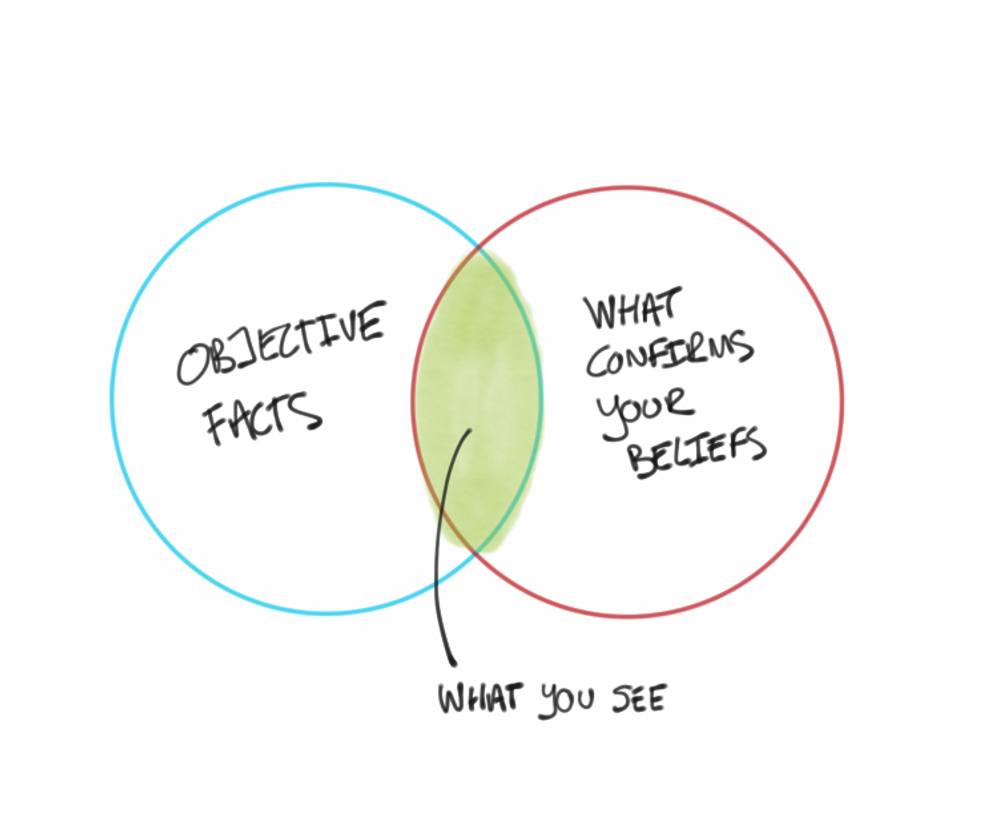 Is Your Desire To Be Right Greater Than Your Desire To Have Been Right? An anomaly is a deviation from what is expected or commonly regarded as the norm. It often appears as an unexpected observation…
Is Your Desire To Be Right Greater Than Your Desire To Have Been Right? An anomaly is a deviation from what is expected or commonly regarded as the norm. It often appears as an unexpected observation…Amazing Grace - The Majesty And The Mercy of Freedom From Your Pain
 "I once was lost, but now I am found, was blind, but now I see." The hymn and popular song "Amazing Grace" was written 250 years ago by John Newton, a former slave trader who in 1748 nearly died in a…
"I once was lost, but now I am found, was blind, but now I see." The hymn and popular song "Amazing Grace" was written 250 years ago by John Newton, a former slave trader who in 1748 nearly died in a…The Transformative Power Of Acceptance
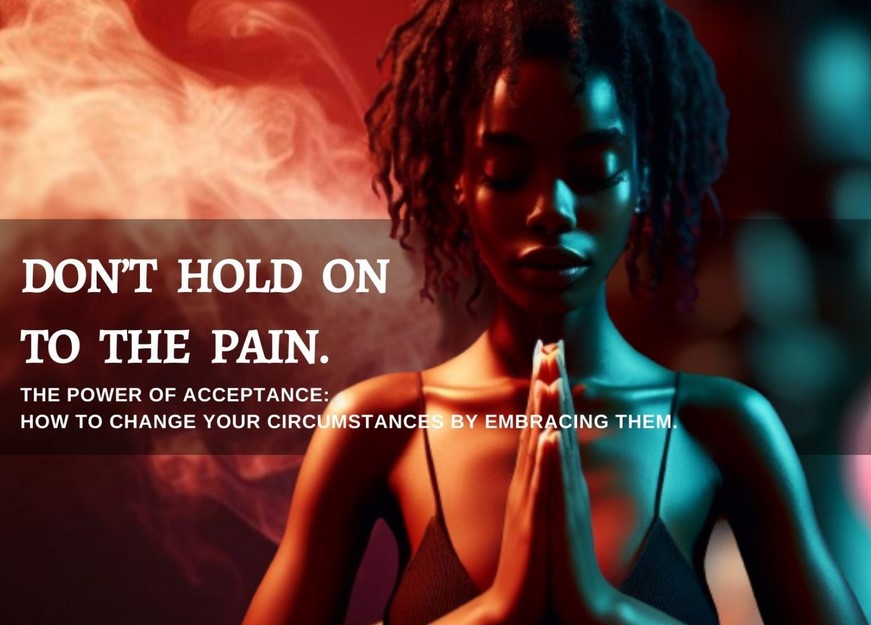 Experience The Power Of Acceptance. This website contains about 500,000 words. You could read every single word and it wouldn't make any real difference to you. You might become better informed, but t…
Experience The Power Of Acceptance. This website contains about 500,000 words. You could read every single word and it wouldn't make any real difference to you. You might become better informed, but t…Inversion - The Power Of Opposite Thinking
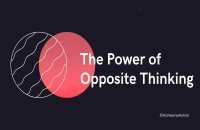 How To Avoid The Unwanted Outcome. The power of opposite thinking, also known as inversion, lies in its ability to stimulate creativity, enhance problem-solving, and provide a fresh perspective on cha…
How To Avoid The Unwanted Outcome. The power of opposite thinking, also known as inversion, lies in its ability to stimulate creativity, enhance problem-solving, and provide a fresh perspective on cha…Are You Aligned With Reality? Or Do You See What You Believe?
 We tend to see that which aligns with what we believe, and to act upon that rather than acting on reality. Being aligned with reality starts with a clear and accurate understanding of the world. It me…
We tend to see that which aligns with what we believe, and to act upon that rather than acting on reality. Being aligned with reality starts with a clear and accurate understanding of the world. It me…The Law Of Response and Outcome
 A New Approach To A New Life At time of writing we are entering a new year which is traditionally a time of making resolutions to change our behaviour and improve the quality of our lives. And yet pow…
A New Approach To A New Life At time of writing we are entering a new year which is traditionally a time of making resolutions to change our behaviour and improve the quality of our lives. And yet pow…Clear Thinking - Turning Ordinary Moments Into Extraordinary Results
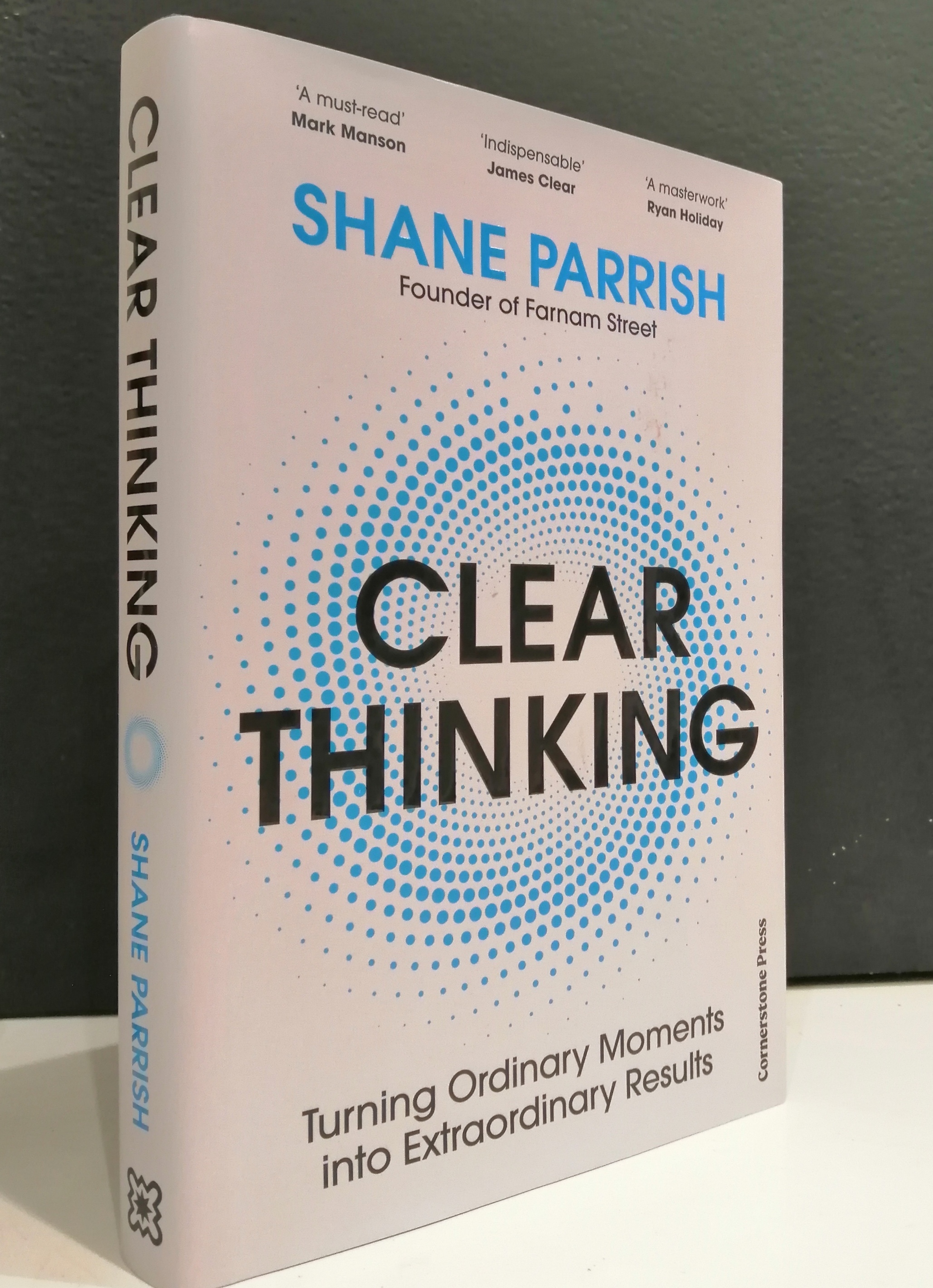 There are two ways to handle the world - try to predict, or try to prepare. "Clear Thinking" by Shane Parrish, published in Oct 2023, is a laudable testament to the art of cogent thinking, and will be…
There are two ways to handle the world - try to predict, or try to prepare. "Clear Thinking" by Shane Parrish, published in Oct 2023, is a laudable testament to the art of cogent thinking, and will be…Self Dialogue - Working With Your Many Selves
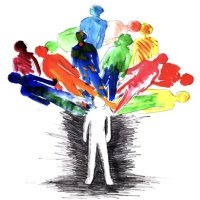 Self Dialogue Is About Working With ALL Levels Of Your Mind. The key to effective self dialogue is to have tools, techniques and resources that work with all levels of your mind. This simple self-faci…
Self Dialogue Is About Working With ALL Levels Of Your Mind. The key to effective self dialogue is to have tools, techniques and resources that work with all levels of your mind. This simple self-faci…The Balanced Brain - The Ultimate Route To Personal Transformation
 How To Experience The Benefits Of A Balanced Brain. Underpinning all of the belief systems and practices that offer routes to personal change, transformation and spiritual growth is the balanced brain…
How To Experience The Benefits Of A Balanced Brain. Underpinning all of the belief systems and practices that offer routes to personal change, transformation and spiritual growth is the balanced brain…How To Make Better Decisions - By Avoiding The Narrative Trap
 To Understand The Truth We Have To See The Whole Picture. One of the best ways to make better decisions is to have a deeper understanding of the many things that might stop that happening. To understa…
To Understand The Truth We Have To See The Whole Picture. One of the best ways to make better decisions is to have a deeper understanding of the many things that might stop that happening. To understa…The Greatest Love - The Most Important Relationship You Will Ever Have
 Yet Most Will Never Know It Everyone of us has a place, in our hearts there's a space, that is home to the greatest love of all. This love transcends everything we think we know about the world of for…
Yet Most Will Never Know It Everyone of us has a place, in our hearts there's a space, that is home to the greatest love of all. This love transcends everything we think we know about the world of for…Everything Is Connected And Why You Don't Feel It
 ...And Why It Matters
As human beings we are skating on very thin ice with our sense of self and certainty about "how things are" and what we like to think of as reality:
...And Why It Matters
As human beings we are skating on very thin ice with our sense of self and certainty about "how things are" and what we like to think of as reality:
Who Is In Charge Of Your Brain?
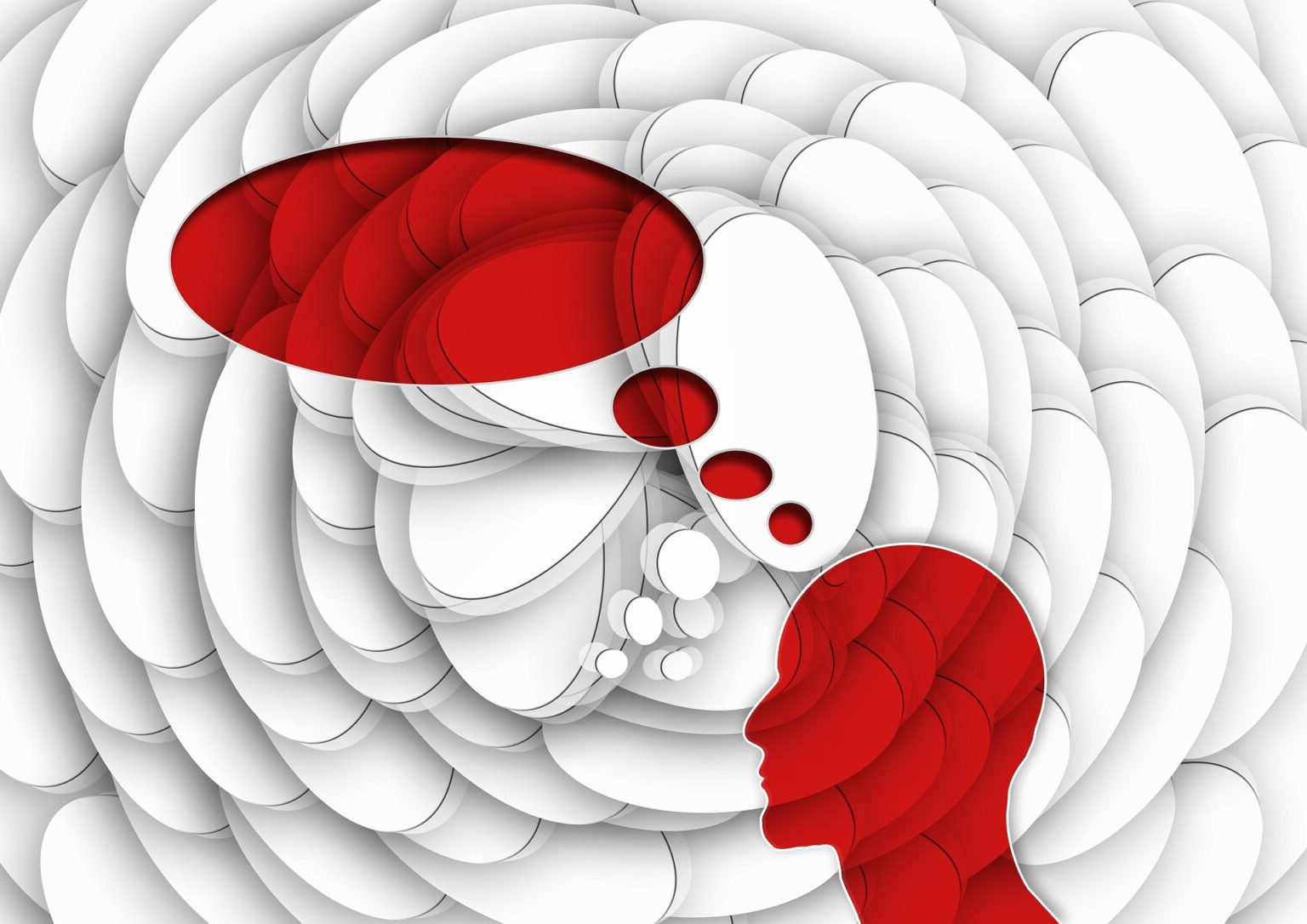 How Not To Be Stupid. Who is in charge of your brain? This is not a silly questions. It matters because the outcomes that you experience in your life are determined by how you respond to the events th…
How Not To Be Stupid. Who is in charge of your brain? This is not a silly questions. It matters because the outcomes that you experience in your life are determined by how you respond to the events th…How To Be A Winner On A Very Large Scale
 The Incredible Benefits Of Selective Attention. This is not a typical article about how to be a winner. We are not going to talk about goal setting, the importance of habits, the power of focus and al…
The Incredible Benefits Of Selective Attention. This is not a typical article about how to be a winner. We are not going to talk about goal setting, the importance of habits, the power of focus and al…The Metagame Approach To Life
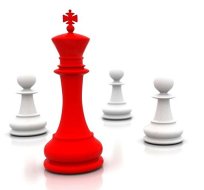 How To Achieve Your Biggest Objectives.
The metagame approach to life is all about winning and achieving your biggest objectives by:
- Understanding the bigger picture
How To Achieve Your Biggest Objectives.
The metagame approach to life is all about winning and achieving your biggest objectives by:
- Understanding the bigger picture
- Being better by doing things d…Shantideva - The Way Of The Bodhisattva
 Walking The Path Of Compassion. Shantideva the 8th century Indian Buddhist sage is famous for his treatise "The Way of the Bodhisattva" delivered as an extended teaching to the monks of Nalanda monast…
Walking The Path Of Compassion. Shantideva the 8th century Indian Buddhist sage is famous for his treatise "The Way of the Bodhisattva" delivered as an extended teaching to the monks of Nalanda monast…Reframing History - Deconstruction And Discussion Not Destruction
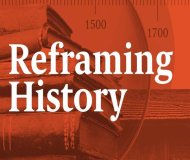 History is always about context, not imposing our own moral values on the past. For those of us fortunate enough to live within western democracies, we are living in an age where a vociferous and into…
History is always about context, not imposing our own moral values on the past. For those of us fortunate enough to live within western democracies, we are living in an age where a vociferous and into…Tao Te Ching - Connecting To Your True Source Of Power.
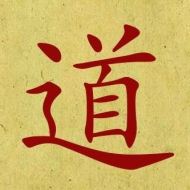 How To Be Lived By The Tao. The Tao Te Ching is one of those books that many people read, few understand, and even fewer put into practice. The only way to know the Tao is to experience it, and it is…
How To Be Lived By The Tao. The Tao Te Ching is one of those books that many people read, few understand, and even fewer put into practice. The only way to know the Tao is to experience it, and it is…How Things Really Are - The Inbuilt Design Flaws
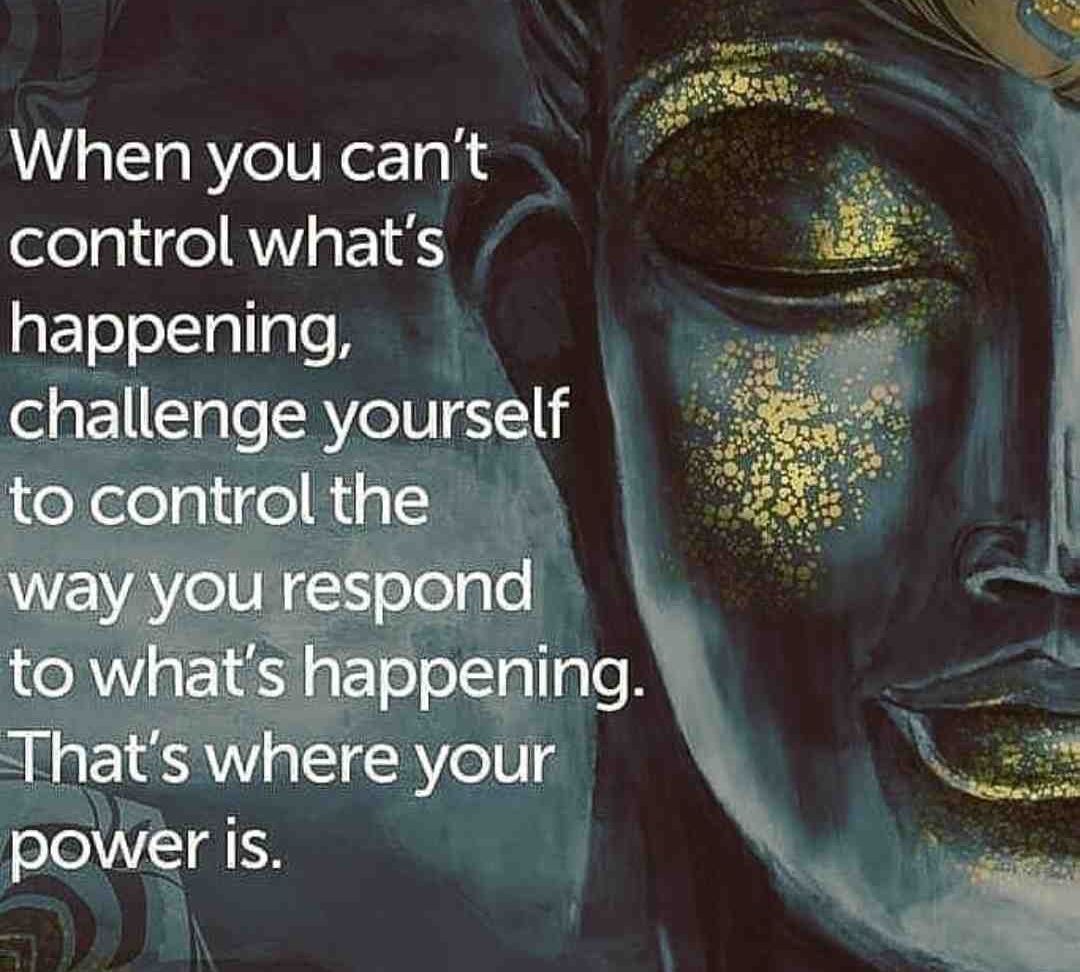 Chaos, Disorder And Decay Is The Natural Order Of Things. Nobody has the perfect life. We all struggle and strive to attain health, wealth and personal happiness. Yet these three big areas: our health…
Chaos, Disorder And Decay Is The Natural Order Of Things. Nobody has the perfect life. We all struggle and strive to attain health, wealth and personal happiness. Yet these three big areas: our health…Intuition Or Anxiety - Are There Angels Or Devils Crawling Here?
 How To Tell The Difference Between Intuition and Anxiety. How do you know whether the voice of your intuition is real or just the product of your inner anxiety? Several months ago I was having a drink…
How To Tell The Difference Between Intuition and Anxiety. How do you know whether the voice of your intuition is real or just the product of your inner anxiety? Several months ago I was having a drink…What Is Truth - How To Tell A Partial Truth From The Whole Truth?
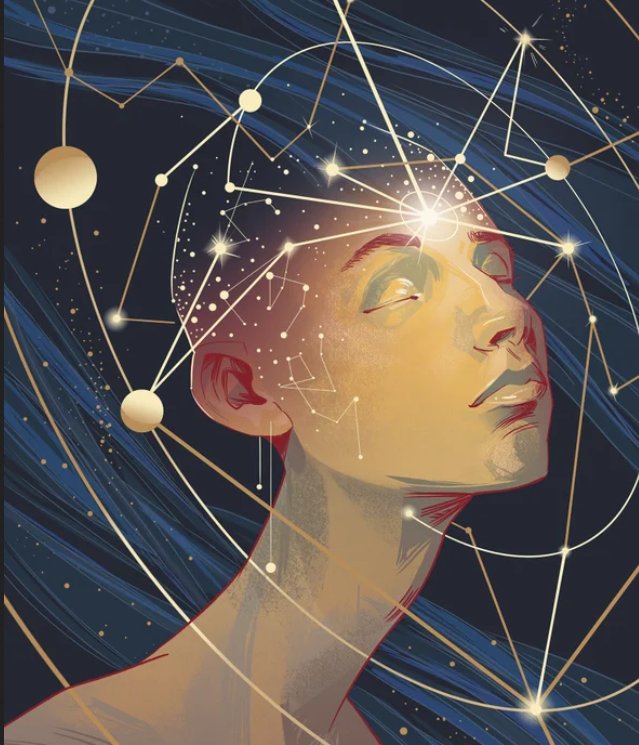 How the truth and nothing but the truth is often not the whole truth. My great aunty Flo broke her arm and died. It is true that she broke her arm in 1923. It is also true that she died in 1949. But t…
How the truth and nothing but the truth is often not the whole truth. My great aunty Flo broke her arm and died. It is true that she broke her arm in 1923. It is also true that she died in 1949. But t…Duality And Life Beyond Your Thinking Mind
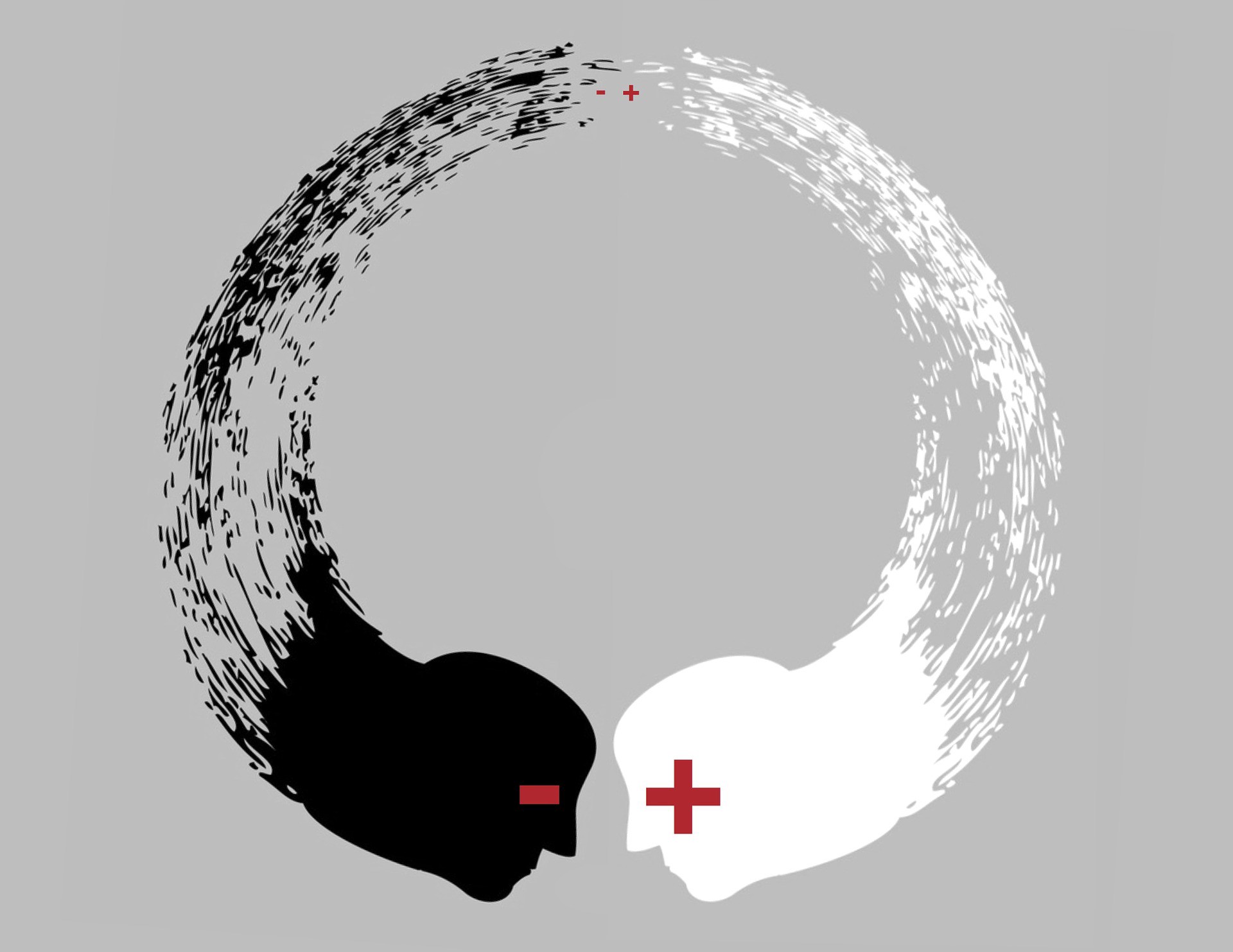 Duality and life beyond your thinking mind focuses on the limitations of time, foreground and background, duality and "stuckness". The first aspect of duality and life beyond your thinking mind focuse…
Duality and life beyond your thinking mind focuses on the limitations of time, foreground and background, duality and "stuckness". The first aspect of duality and life beyond your thinking mind focuse…The Conscious Mind Is Limited - Be Aware And Be Prepared
 Being aware is the first stage of being prepared. The conscious mind is limited in so many ways. There are some who would argue that there is no such thing as conscious thought and that it is represen…
Being aware is the first stage of being prepared. The conscious mind is limited in so many ways. There are some who would argue that there is no such thing as conscious thought and that it is represen…Your Inner Map Of Reality - Here's Why You Think The Way You Do
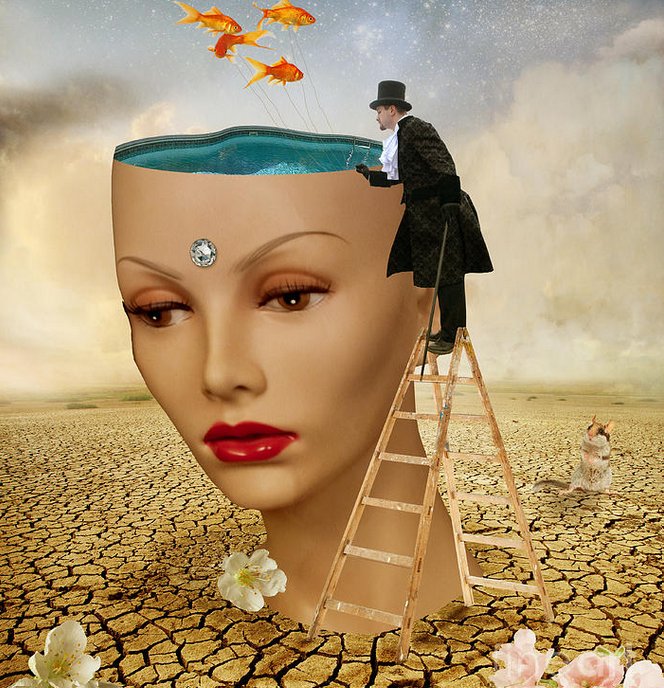 The big picture of how your inner map of reality creates your feelings, thoughts, and behaviours. Your inner map of reality is based on the filters of your own ethnic, national, social, family and rel…
The big picture of how your inner map of reality creates your feelings, thoughts, and behaviours. Your inner map of reality is based on the filters of your own ethnic, national, social, family and rel…The Failure Of Cancel Culture - Suppression Not Engagement
 Why we need to wear our beliefs lightly and develop negative capability. Throughout history people have campaigned to fight beliefs, ideologies, and injustices that they perceived to be oppressive, di…
Why we need to wear our beliefs lightly and develop negative capability. Throughout history people have campaigned to fight beliefs, ideologies, and injustices that they perceived to be oppressive, di…4 Big Reasons Why We Get Stuck In Our Attempts At Personal Change
 Most People Spend Their Entire Life Imprisoned Within The Confines Of Their Own Thoughts. This first of the 4 big reasons why we get stuck is, in my view, the most important. The "self-help industry…
Most People Spend Their Entire Life Imprisoned Within The Confines Of Their Own Thoughts. This first of the 4 big reasons why we get stuck is, in my view, the most important. The "self-help industry…How Do I Change And Why Is It So Hard?
 We Would Rather Die Than Change, And We Usually Do In my experience, the vast majority of people who say they want to change don’t change. Most people reading this won’t change because they don’t real…
We Would Rather Die Than Change, And We Usually Do In my experience, the vast majority of people who say they want to change don’t change. Most people reading this won’t change because they don’t real…The Illusion Of A Separate Self - Windows 11 With Self Awareness!
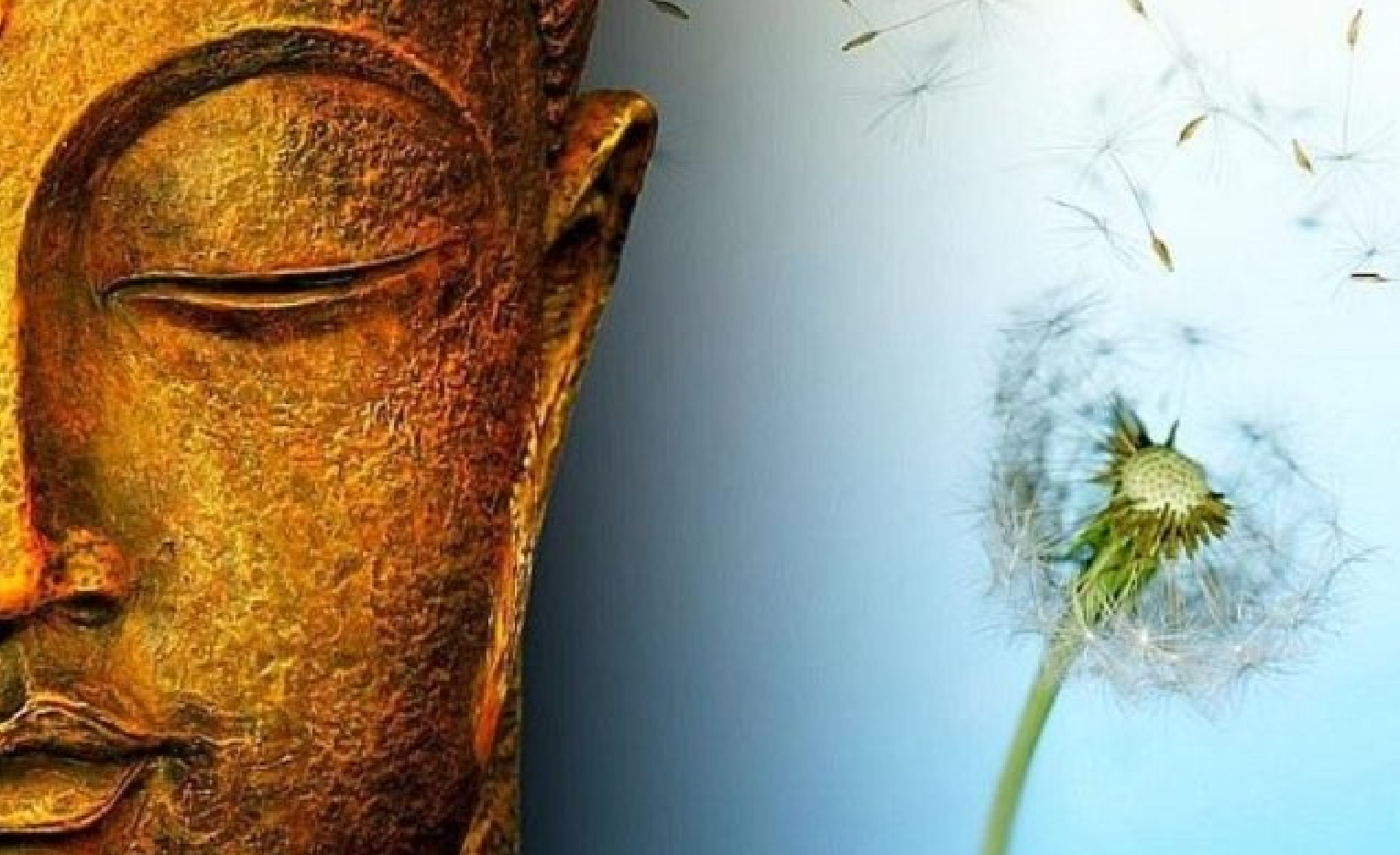 Beyond the content of your mind you are so much more than you think you are. When we talk of "myself" this is the conventional way of referring to our self image which is in fact the ego's constructio…
Beyond the content of your mind you are so much more than you think you are. When we talk of "myself" this is the conventional way of referring to our self image which is in fact the ego's constructio…